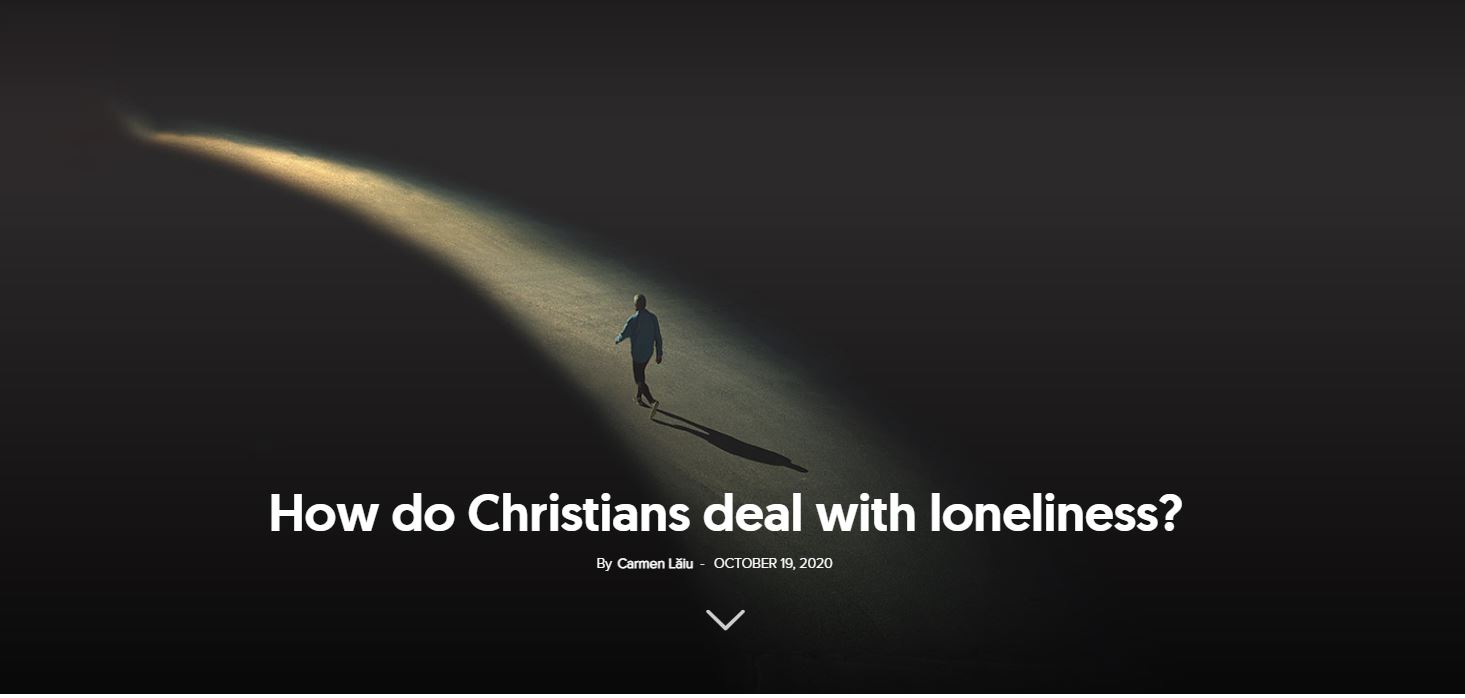At the age of 34, Joseph already has his own business, into which he has invested much of his soul and talent. He is a carpenter, and the personality of the pieces he carves, chisels, polishes, and paints with his hands stands out beautifully. With each order he sends to a customer, Joseph takes some time to send a handwritten thank-you note. On some of them he writes, if necessary: “By the way, this piece was approved by my grandma.”
Joseph’s workshop is located in the garage of his grandmother’s house. Joseph and his grandmother live in the same house, and the young, blond, blue-eyed man with a wide smile says that, for him, this is “an honour”. “I do care for her and we have every meal together but it’s not a chore. Like I say, it’s an honour.” Joseph Burton’s grandmother’s name is Shelagh Fane and she is 87 years old. The BBC published their story online, and, among the people who reacted by congratulating the young man, confessions began to appear about other young people who have chosen to take care of the aged members of their family by living with them.
How difficult loneliness is
Nathalie Cauchi said that her 21-year-old daughter works full time and lives with her 86-year-old grandfather. “She takes care of him, she cooks, she does the cleaning, the shopping, she makes sure he takes his medicine…she has a heart of gold”.
Another user said that, “as a child, my grandfather, grandmother, great-grandfather, and great-grandmother lived together in my great-grandfather’s house. We, the children, went to visit them occasionally. They took care of each other, helped by my parents. It was a wonderful experience for us kids. I also live with and take care of my mother, who is 83 years old. We started a small hotel where people can leave their bunnies and guinea pigs, while on vacation, at our home. That way I have an income, but I can also offer my mother a fulfilled life.”
Some commentators sadly acknowledged that while Joseph’s story is touching and happy, it remains an unattainable ideal for families whose elders have greater needs than their families can tend to or who become violent because of illnesses such as dementia. However, the more than 1,000 reactions written as a reply to the BBC report say, in one form or another, that Joseph’s story is wonderful, and that it is desirable for families to be united and loving.
However, the statistics from Great Britain vividly oppose these desires with the reality which, unfortunately, is far from bringing smiles to the faces of those who know it. Great Britain has come to be called “the capital of loneliness in Europe”, says Eliza Vladescu. For the first time in history, the British Prime Minister appointed a minister of loneliness to combat what he called the “sad reality of modern life.” The British Red Cross reports that out of a population of 65.6 million, over 9 million Britons feel lonely, occasionally or permanently.
Loneliness can increase the risk of death by up to 10%
Loneliness is a public health issue and should be addressed urgently, says Laura Ferguson, campaign director for the British coalition End Loneliness. Ferguson warns that loneliness not only promotes the onset of diseases such as hypertension or dementia, but can even lead to death. “There are links with early death”, Ferguson said. “The risk factor is similar to smoking and worse than obesity”.
Loneliness is an aggravating factor for disease and can increase the risk of death by 10%, according to a study published by JAMA. For people over the age of 60, loneliness is one of the main sources of suffering that affects their quality of life.
“Loneliness is a common source of suffering in older persons. We demonstrated that it is also a risk factor for poor health outcomes including death and multiple measures of functional decline”, says Dr Carla Perissinotto, author of the study.
In the research, the team examined the relationship between loneliness and the risk of functional decline and death in 1,604 people over the age of 60, over a six-year period. Participants, with an average age of 71, were asked if they felt excluded, isolated, or if they lacked someone’s company in their lives. Of these, 43.2% said they felt alone.
Another American study identified a link between loneliness and the risk of death among people with heart disease, who run the risk of blood clot formation. The scientists analysed data from 44,573 middle-aged people, of whom 8,594 participants lived alone. Loneliness was also associated with a 3% higher probability of dying in a four-year period. This risk increases among people with heart disease from about 7% to 8.6%.
Why even people with many friends can feel alone
Loneliness is, of course, not just a British issue. The number of single people has increased rapidly in recent decades in almost 40% of the world’s countries, says Carmen Lăiu, in an analysis published last year. And, although each country has its own cultural peculiarities, some aspects of loneliness remain common to all, regardless of culture.
Loneliness is the difference between the social contact one desires and the contact one really has, says Vanessa Burnholt, a professor at the Center for Innovative Care in Aging at Swansea University. Burholt added that this could explain why some people feel lonely, even though they have many friends. “It’s a subjective phenomenon…”
Equally interesting to note is that one’s environment or mental health can have a significant impact on the perception of social relationships. “Adjusting one’s expectations regarding desired social relations is more difficult to achieve for those with depression”, Burholt said.
Loneliness can be our friend…
In an essay for The Bible Counseling Coalition, American pastor Steve DeWitt, unmarried at the time, wrote about loneliness from the perspective of someone who felt deeply affected by it, but eager and inclined to find a solution in his faith.
“Our emotions can help if we hear them properly,” DeWitt says. “Loneliness is not an enemy or a scourge but a friend and a kind of helpful companion.” The pastor says that because humans were created to cultivate a deep communion with God, loneliness may hurt us as a reminder of the reality that we carry within us the need for communion with Him, which no other relationship can replace, albeit an irreproachable one.
You may also want to read…
DeWitt argues using the words of St. Augustine, who said that “our heart is restless until it rests in You.” That is why the pastor advocates for the embrace of loneliness as a friend who reminds us that we have a unique need for God, which only God can satisfy. “Following the counsel of Elisabeth Elliot [a Christian American writer], I turn my loneliness into solitude and my solitude into prayer.”
The pastor also drew attention to the role of the church as a community of faith whose members take interest in each other and help each other. “Solitary confinement is for prisons, not the church,” DeWitt says. “We overcome loneliness when we forget ourselves and become concerned with other people and their needs, especially people we don’t perceive as able to meet our needs.”
Let’s not exaggerate, though. We also need each other.
The pastor’s advice, however, concerns only the individual aspect, the way a person who suffers from loneliness thinks. The problem of loneliness must be attacked from many angles. The founders of the British End Loneliness campaign have thought of several means of intervention to facilitate, from the outside, the fight against loneliness. “Reach. Understand. Support.” is the triple motto that the organization has created and that describes its working method.
To help someone who is lonely, you don’t have to wait for them to come to you. You have to reach out to that person. Listen to them in order to better understand the peculiarities of their problem and their needs. This is the only way to help them with what you can.
Usually, single people can be helped in three very important aspects of their social relationships. Some may already have relationships, but, for whatever reason, cannot maintain them. Maybe they have relatives who live abroad, or in cities far away. A helping hand with transport or the use of communication technology can reduce distances and the feeling of loneliness in such cases. People can be helped to reconnect with their loved ones.
Another aspect that can be addressed is the promotion of the formation of new connections. The single person can be helped to integrate into social groups with which they have common interests (a cooking club, a painting class, a reading group, a music therapy session, a sports course, etc.). From the outside, they can be helped by creating contexts in which they can meet people who bring them joy and to whom they can bring joy.
A cure for loneliness, even for geniuses
At the age of 97, American philosopher Herbert Fingarette faced the reality of his imminent death, 20 years after the publication of his book on death. In it, he had written that the fear of his own disappearance is irrational. When you die, he said, “there is no reason to be concerned or afraid or anything about death, because when you die there is nothing. You’re not going to suffer, you’re not going to be unhappy, you are not going to be…It’s something that haunts me, the idea of dying soon… I often walk around the house and I ask myself what is the point of it all? It must be something I’m missing… I wish I knew.”
Among Fingarette’s thoughts, displayed in the mini-documentary, “A Philosopher Facing His Own Death”, one can identify certain clues about his emotional life. He misses his long-dead wife. With touching words, the philosopher confesses that “her absence has been a presence, an absence which was present to me”.
The film would have ended on a sad note had he not written about who made it, immediately after the final shots: his nephew. Fingarette was not completely alone. He died two weeks after the film was edited and got to see it. He told his nephew that watching the film gave him more clarity about what was essential to himself. This despite the fact that, in the documentary, the philosopher said that “it is very difficult for someone who has not reached my age to understand me”. His nephew had understood.
Perhaps, in the same way, beyond creative programs, the key to success—the bridge that connects extremely different generations, cultures, and life experiences—is something equally abstract, practical, and primary. It is love.




















